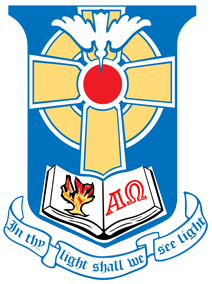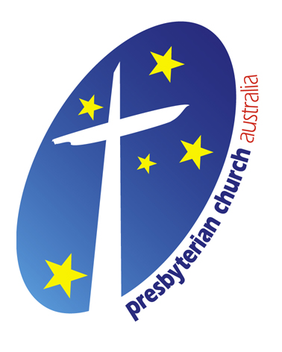Related Research Articles

Presbyterianism is a Reformed (Calvinist) Protestant tradition named for its form of church government by representative assemblies of elders. Though other Reformed churches are structurally similar, the word Presbyterian is applied to churches that trace their roots to the Church of Scotland or to English Dissenter groups that formed during the English Civil War.

The Associate Reformed Presbyterian Church (ARPC) is a theologically conservative denomination in North America. The ARPC was formed by the merger of the Associate Presbytery (seceder) with the Reformed Presbytery (covenanter) in 1782. It is one of the oldest conservative denominations in the United States.

The Free Presbyterian Church of Scotland was formed in 1893. The Church identifies itself as the spiritual descendant of the Scottish Reformation. The Church web-site states that it is 'the constitutional heir of the historic Church of Scotland'. Its adherents are occasionally referred to as Seceders or the Wee Wee Frees. Although small, the church has congregations on five continents.

The Evangelical Presbyterian Church (EPC) is an American church body holding to presbyterian governance and Reformed theology. It is a moderate Calvinist denomination. It is most distinctive for its approach to the way it balances certain liberties across congregations on "non-essential" doctrines, such as egalitarianism /complementarianism in marriage or the ordination of women, alongside an affirmation of core "essential" doctrinal standards.

The Presbyterian Church of Eastern Australia (PCEA) is a small Presbyterian denomination which was formed in Sydney on 10 October 1846 by three ministers and a ruling elder. As of December 2024 it consists of 11 pastoral charges with a total of 14 regular preaching places, 6 serving ministers, 2 ministers without charge, 3 retired ministers and a community of about 500.

The Presbyterian Church of Australia (PCA), founded in 1901, is the largest Presbyterian denomination in Australia. The PCA is the largest conservative, evangelical and complementarian Christian denomination in Australia. The Presbyterian Church of Australia is Reformed in theology and Presbyterian in government.
The Evangelical Presbyterian Church is a small Australian Reformed Christian denomination. In September 2010 it had five centres: Brisbane; Londonderry (Sydney); Cohuna, Victoria ; Launceston and Winnaleah (Tasmania) with until 2014 a small school at Herrick near Winnaleah.
The Christian Reformed Churches of Australia (CRCA), formerly known as the Reformed Churches of Australia (RCA) is a Christian denomination established in Australia belonging to the Reformed/Presbyterian tradition.

The reformed confessions of faith are the confessional documents of various Reformed churches. These express the doctrinal views of the churches adopting the confession. Confessions play a crucial part in the theological identity of reformed churches, either as standards to which ministers must subscribe, or more generally as accurate descriptions of their faith. Most confessions date to the 16th and 17th century.

The Westminster Standards is a collective name for the documents drawn up by the Westminster Assembly (1643–1649). These include the Westminster Confession of Faith, the Westminster Shorter Catechism, the Westminster Larger Catechism, the Directory of Public Worship, and the Form of Church Government, and represent the doctrine and church polity of 17th century English and Scottish Presbyterianism. The Westminster Confession of Faith and Larger and Shorter Catechism have been adopted as doctrinal standards by a number of Reformed and Presbyterian Christian denominations, but not the Church of Scotland nor those derived directly from it.

Reformed Churches of New Zealand is a Calvinist denomination in New Zealand. The denomination is constituted of 22 member churches, the first seven of which were formed in 1953. Total membership as of 2023 stands at 3,530.
The Heritage Reformed Congregations (HRC) is a Reformed denomination in the United States and Canada influenced by the tradition of English Puritanism and the Dutch Nadere Reformatie.
The Free Presbyterian Churchof Australia is a denomination which currently consists of four congregations in fellowship with the Free Presbyterian Church of Ulster. There are congregations in Port Lincoln, Perth, Lock and Kingston, Tasmania.

The Reformed Presbyterian Church of North America (RPCNA) is a Presbyterian church with congregations and missions throughout the United States, Japan, and Chile. Its beliefs—held in common with other members of the Reformed Presbyterian Global Alliance—place it in the conservative wing of the Reformed family of Protestant churches. Below the Bible—which is held as divinely inspired and without error—the church is committed to several "subordinate standards," together considered with its constitution: the Westminster Confession of Faith and Larger and Shorter Catechisms, along with its Testimony, Directory for Church Government, the Book of Discipline, and Directory for Worship.

The Reformed Presbyterian Church of Ireland is a Presbyterian church in Ireland. The church currently has forty-three congregations, of which thirty-five are located in Northern Ireland; the remaining eight are located in the Republic of Ireland. As of 2011, its total communicant membership is 1,952. The distribution of Reformed Presbyterians accords with the distribution of the Ulster Scots, with most congregations based in counties Antrim, Londonderry and Down. Several new congregations have, however, been formed recently in the Belfast area, along with fellowships in Galway and Dublin.

The regulative principle of worship is a Christian doctrine, held by some Calvinists and Anabaptists, that God commands churches to conduct public services of worship using certain distinct elements affirmatively found in scripture, and conversely, that God prohibits any and all other practices in public worship. The doctrine further determines these affirmed elements to be those set forth in scripture by express commands or examples or, if not expressed, those implied logically by good and necessary consequence. The regulative principle thus provides a governing concept of worship as obedience to God, identifies the set of specific practical elements constituting obedient worship, and identifies and excludes disobedient practices.
A subordinate standard is a Reformed confession of faith, catechism or other doctrinal or regulatory statement subscribed to by a Protestant church, setting out key elements of religious belief and church governance. It is subordinate to the Bible as the supreme standard, which is held as divinely inspired and without error.
The Reformed Presbyterian Church of India is a historic confessional Presbyterian denomination in India, established in the 19th century by Scottish and Irish missionaries.
The Presbyterian Church in Paraguay is an independent confessional Reformed Calvinist denomination in Paraguay, it was founded by Brazilian missionaries.
The Kosin Presbyterian Church in Korea, also called Korea-pa, is an Evangelical Reformed and Presbyterian denomination in the Republic of South Korea. Although, congregations have spread all over North America and in many other countries.
References
- 1 2 "Places of Worship". Archived from the original on 2011-07-06. Retrieved 2010-10-17.
- 1 2 Rowland Ward and Robert Humphreys, Religious Bodies in Australia, 3rd edition (Wantirna, Victoria: New Melbourne Press, 1995), 88.
- 1 2 "Our History". Australian Free Church. Archived from the original on 2011-07-06. Retrieved 8 April 2011.
- 1 2 Australian Free Church
- ↑ Standards Archived 2011-07-06 at the Wayback Machine , Australian Free Church